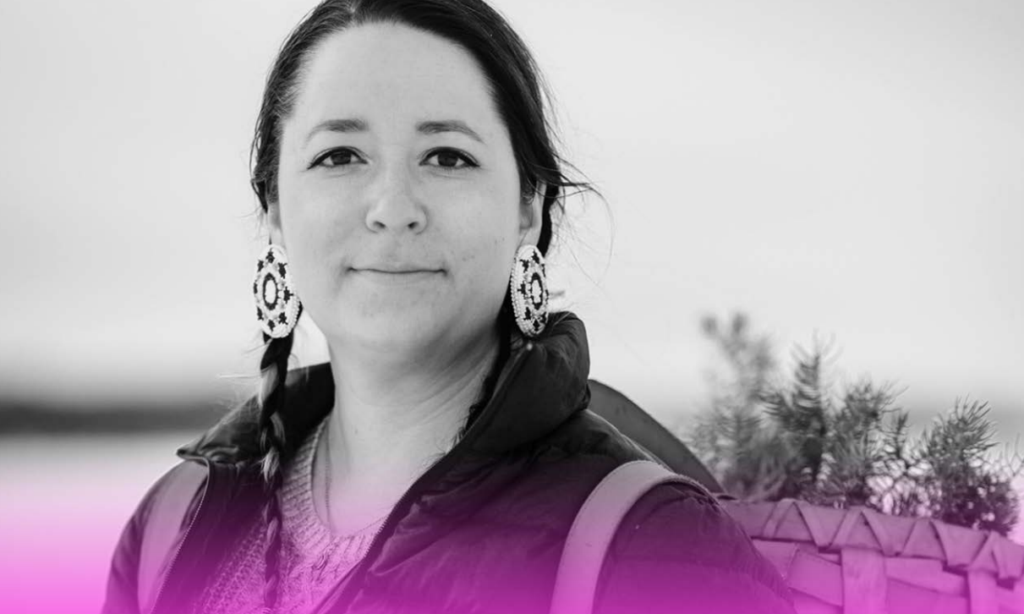Project Insights Report
Upskill and Certify Indigenous Child and Youth Practitioners
 Executive Summary
Executive Summary
The Upskill and Certify Indigenous Child and Youth Practitioners project aimed to address the barriers that Indigenous child and youth workers face in accessing postsecondary opportunities to build skills and advance their careers. Indigenous child and youth workers play a critical role in supporting youth development in their communities. The barriers they face include lack of access to culturally relevant programming, limited financial resources, time constraints due to work and family obligations, low confidence in postsecondary learning and a mistrust of formal educational systems.
The project involved a collaboration between Right To Play International and two of Toronto Metropolitan University’s institutes: the Chang School of Continuing Education and the School of Child and Youth Care. It focused on developing and implementing a university certificate program with a curriculum designed and delivered by Indigenous experts. The program applied a multimodal learning approach with asynchronous courses, individual coaching and a work-learning placement in students’ communities.
The initial cohort had a 28% graduation rate, similar to other such programs. Participant satisfaction was high. All participants reported that the program helped them work toward their professional goals of building their child and youth program and advancing their careers. The program was considered relevant and improved participants’ confidence. A total of 71% of participants implemented skills and knowledge directly into their programming. The program faced challenges related to technology access and online navigation, differences in learners’work experiences and educational backgrounds, and students juggling learning with work and family commitments. More attention to these barriers from the outset could have improved participation. Employer support proved to be important in engaging and retaining learners in the program.
Insights from this certificate program are relevant to future postsecondary education practices and policies for Indigenous learners. More specifically, they are relevant to those seeking to upskill and gain university credentials while maintaining employment in their home communities.
Key Insights
The Upskill and Certify Indigenous Child and Youth Practitioners project had a graduation rate of 28% in the first cohort, with 7 of 25 enrolled participants completing the program. While lower than hoped, this figure was consistent with similar certificate programs.
Most students reported that the program was directly relevant to their work, increased their knowledge and confidence, and motivated them to pursue future education and career development. Technological access remained a barrier for some learners.
The curriculum, developed and delivered by Indigenous experts, was well-received. The program included a blend of asynchronous learning, individualized coaching and a work-learning placement in learners’ communities.
 The Issue
The Issue
Indigenous child and youth workers play a crucial role in supporting the well-being of young people in their communities. Youth workers use culturally appropriate approaches and community-based resources to help children and youth build skills to support their positive development into adulthood. Their work is particularly significant since Indigenous youth are a relatively large and growing demographic: children and youth aged 14 years and younger make up 25% of the total Indigenous population in Canada, compared with 16% of the non-Indigenous population (in 2021).
Yet Indigenous workers face barriers in their ongoing skills training and professional development. Indigenous youth workers cannot easily access postsecondary education or upskilling opportunities from their home communities. The training that is available is often not culturally relevant to their work. Other barriers to university-level training include limited financial resources, managing work and family obligations, and distrust of formal educational systems. This issue affects Indigenous populations across Canada, including First Nation, Métis and Inuit communities.
This lack of opportunity has immediate and future implications. The ability to upskill will enhance workers’ current work with children and youth and influence future career mobility, particularly if they obtain certification from a postsecondary institution. In fact, according to federal government estimates, more than 70% of jobs created in the coming decade will require postsecondary education.
The Indigenous Child and Youth Engagement Certificate program was conceived to address this gap by Right To Play, Toronto Metropolitan University’s Chang School of Continuing Education and the School of Child and Youth Care.

 What We Investigated
What We Investigated
The Indigenous Child and Youth Engagement Certificate program was designed to upskill and certify Indigenous child and youth practitioners while addressing barriers to accessing education.
The certificate program took a blended learning approach, including asynchronous courses, individualized coaching support and work-learning practice experience in participants’ communities. Indigenous learners were able to obtain university credits with a culturally relevant curriculum while remaining employed in their home communities.
The program curriculum was developed and delivered by Indigenous instructors. It addressed educational barriers unique to Indigenous learners, including financial constraints, low confidence and distrust of the educational system. Learners had to complete four required courses—two theory-based and two experiential—to obtain the certificate. For the work-learning practicum, students had to plan and implement a minimum of eight hours of outcome-based programming for children and youth.
Right To Play provided wraparound measures to enhance student success through in-person experiential training and individualized remote and in-person coaching. These components worked to equip youth workers with the skills to deliver child-friendly and participatory programming. The Chang School of Continuing Education managed student registration and administration, while the School of Child and Youth Care developed courses.
The questions considered during the development and delivery of this program were as follows:
- What is required for institutions and organizations to effectively and collaboratively deliver an educational and work-learning certification program?
- What are the opportunities for scaling a successful program?
- What is the impact of the multimodality certification program on the delivery of the program?
- What are the facilitators and barriers to success?
- Will a positive experience in university-based online learning encourage students to pursue further education?
To measure the impact of the program, program coordinators conducted baseline and end-line surveys to assess changes in participants’ knowledge, attitudes and behaviours concerning life-skill outcomes.
 What We’re Learning
What We’re Learning
Both positive results and distinct challenges emerged from the first two cohorts of the Indigenous Child and Youth Engagement Certificate Program. Overall, the program was well-received by Indigenous child and youth workers and considered relevant to their careers. Employer support was shown to be critical to their successful participation. Better preparation for technology challenges and the diversity of learner backgrounds could have improved the program.
Graduation rates were low but consistent with similar programs
The project had two cohorts running from January to December 2022 and January to August 2023. In the first cohort, 25 students enrolled and 7 completed the program, resulting in a 28% graduation rate. This rate was consistent with similar Indigenous programs across Canada and with other professional certificate programs offered through the Chang School. However, only 1 of 15 participants from the second cohort completed the program, yielding a 6% graduation rate. The second cohort had a compressed time schedule with summer courses, which may have been inconvenient, leading to a lower graduation rate.
The program positively impacted respondents
End-line surveys from the first cohort showed positive results in the areas of student satisfaction, confidence and relevance to practice and career goals. From a sample of seven respondents, 86% praised the instructors’ expertise and 71% were willing to recommend the program to others. However, 71% indicated that the course content was only sometimes organized, clear and easy to follow. All participants felt more confident in their roles as community mentors and child and youth workers. All participants indicated that the program helped them work toward professional goals of building their child and youth programs.
The program also positively impacted participants’ professional practices. In total, 71% of participants had already begun implementing skills and knowledge they had acquired, such as supporting the mental health of co-workers or youth in their programs. The courses improved their knowledge, especially in incorporating play-based, land-based, cultural or language activities into programming. In response to this programming, some even reported seeing positive responses in the children and youth they worked with. All expressed increased motivation for further education, acknowledging the program’s support in their professional development and career advancement.
Employer support allowed the students to remain in the program and apply their learning to their work. Support came in the form of encouragement and recognition, as well as genuine interest in their employees’ upskilling and learning.
The program faced various challenges
While the program was designed to address barriers to Indigenous learners, it faced unanticipated challenges that could be addressed in future programs. These included uneven access to technology, communication issues between learners and the school, differences in students’ academic backgrounds, and the need for students to balance coursework with work and family obligations.
With regards to technology, some learners found the online platform difficult to navigate and use. Access to technology infrastructure also varied among participants. Another drawback was the lack of a supportive and engaging group of peers, which would have particularly helped learners unfamiliar with postsecondary education.
The diversity of educational backgrounds also meant the coursework was more challenging for some learners. Most participants had some type of education or certification, such as college or Elder teachings, while a few had no formal education and some had bachelor’s degrees. The tight program schedule and balancing of coursework with personal and professional responsibilities were obstacles for many participants. In terms of recruitment, one issue was that the program did not offer a clear value proposition that tied to career development.
 Why It Matters
Why It Matters
The project has lessons relevant to other postsecondary online initiatives for Indigenous learners, as well as broader policy implications. Notably, one key success was the creation of a curriculum developed and delivered by Indigenous experts. Participants felt the program was relevant to their settings and were able to directly apply learnings to their work. This approach to curriculum development could be applied to other contexts.
The multimodal learning model of academic learning, personalized coaching and direct, community-focused practical experience was also shown to have a positive impact on engagement and relevance. This success suggests potential applicability in other contexts where educational efforts are directed toward underserved groups.
Another important lesson was the importance of employer support and work-learning experiences. These elements not only improved the practical application of learned skills but also boosted the likelihood of sustained employment and personal development.

State of Skills:
Enhancing Career Prospects and Well-Being for Canadian Youth
Employment prospects and labour market outcomes of youth (typically considered aged 15 to 24) are highly cyclical in nature, i.e., during economic downturns employment among youth is disproportionately negatively affected compared to adults.
The challenges of low retention and graduation rates were not unique to this program, and highlighted barriers that other postsecondary institutions, as well as policymakers, could address.
Indigenous learners face barriers to education throughout their lives. To create a more equitable starting point, assessing learners’ abilities at the program outset and providing academic preparation or support for navigating technology could have improved engagement and retention. Additional resourcing to provide wraparound support could also have benefitted participants in the absence of an in-person learning community.
Technology infrastructure is a broader issue that highlights the need for policies that ensure access to essential resources. Addressing internet access challenges is relevant not only for educational programming but also broader governmental or sectoral strategies aimed at enhancing digital inclusivity.
The implementation of this model shows the potential for scaling and adapting similar frameworks across various regions and educational contexts. Addressing the identified barriers through program and policy adjustments could improve the accessibility and effectiveness of postsecondary educational programs for Indigenous populations.
Have questions about our work? Do you need access to a report in English or French? Please contact communications@fsc-ccf.ca.
More from FSC
Assessing the impact of hybrid work models on work quality
Supporting Entrepreneurship and SMEs: A Post-Pandemic Skills and Training Agenda
Training for Tomorrow
How to Cite This Report
Boskov, S. (2025). Project Insights Report: Upskill and Certify Indigenous Child and Youth Practitioners, Right to Play International. Toronto: Future Skills Centre. https://fsc-ccf.ca/projects/upskill-youth-practitioners/
Upskill and Certify Indigenous Child and Youth Practitioners is funded by the Government of Canada’s Future Skills Program. The opinions and interpretations in this publication are those of the author and do not necessarily reflect those of the Government of Canada.




